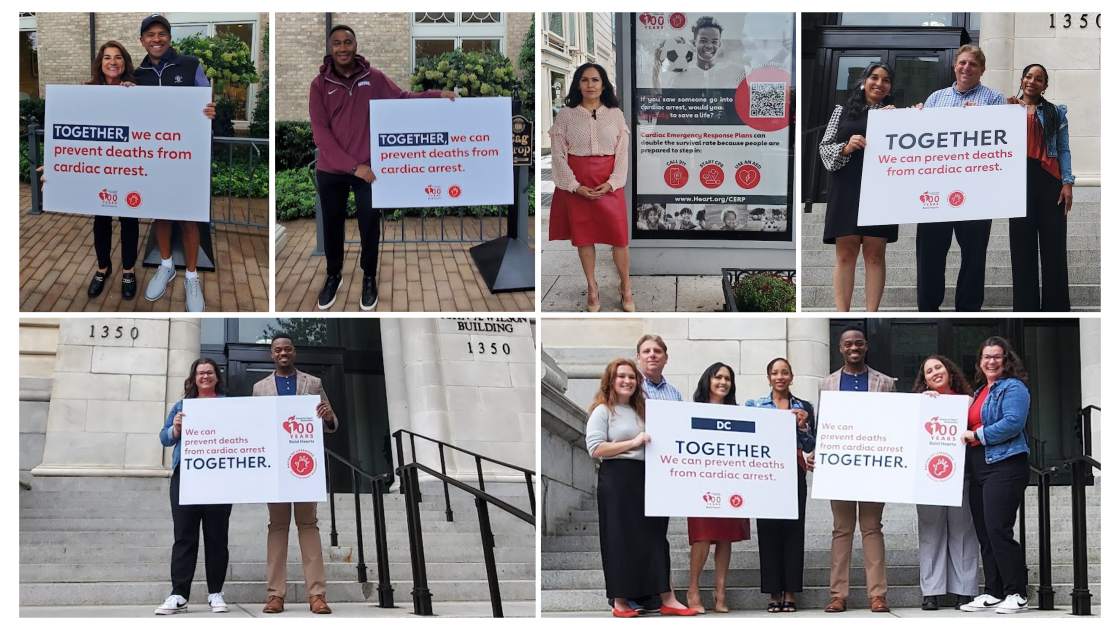
Washington, DC, October 15, 2024 – The DC Council today unanimously passed legislation requiring DC schools to have cardiac emergency response plans.
The Cardiac Planning and Response (CPR) Act requires all D.C. schools to have cardiac emergency response plans so they are prepared to respond to a cardiac arrest in a school building or athletic facility on school grounds. The bill was introduced in Nov. 2023 by Councilmember Kenyan McDuffie and eight other members of the DC Council. Today, the District joins 13 states, including Maryland, that have enacted similar policies.
More than 350,000 cardiac arrests occur annually in the US, with up to 23,000 of those happening to people under 18 years old. Some studies find that 40% of youth cardiac arrests are sports related. A cardiac emergency response plan can increase survival rates from cardiac arrest by 50% or more with trained staff prepared to act.
“Nine out of 10 people who suffer cardiac arrest outside of a hospital do not survive, and bystander CPR is performed less than half the time,” said Ameya Kulkarni, M.D. FSCAI, American Heart Association Greater Washington Region (AHA GWR) board president and associate medical director at Kaiser Permanente. “When there’s a plan of action, we can dramatically increase survival rates. With this legislation, DC students and athletes can feel safer knowing their schools will know what to do if someone goes into cardiac arrest.”
AHA GWR thanks Councilmember McDuffie for championing this policy and the DC Council for its support for this lifesaving bill and urges Mayor Bowser to sign it into law.
“I survived a sudden cardiac arrest because I was in the right place at the right time,” said survivor, DC resident and mother of two DC school students, Delya Sommerville, whose heart stopped when she was jogging by the U.S. Capitol in 2021 and was saved by the quick action of Capitol Police. “I’m thrilled that this legislation will make DC students safer by ensuring that if a cardiac arrest happens to anyone at a school or school-based athletic facility, there will be a coordinated plan to call 911, access an AED, perform CPR and drastically improve the odds of saving someone’s life.”
On July 10, 2024, survivors, physicians, advocates and a representative from the National Football League participated in a hearing to testify in support of the CPR Act. One of the advocates, survivor and Miss District of Columbia, Jude Maboné shared her story.
“At 16 years old, I had my first heart attack during a summer cross country practice. My coaches did not understand the severity of what was happening, had no idea what to do and as a result, they left me to wait for emergency services alone,” Maboné shared in her testimony. “It is not enough to just teach a handful of people CPR and have an AED onsite. We have an opportunity here to empower coaches, school administrators, teachers and staff to step up and act with confidence when cardiac emergencies happen.”
About the American Heart Association
The American Heart Association is a relentless force for a world of longer, healthier lives. We are dedicated to ensuring equitable health in all communities. Through collaboration with numerous organizations, and powered by millions of volunteers, we fund innovative research, advocate for the public’s health and share lifesaving resources. The Dallas-based organization has been a leading source of health information for a century. During 2024 – our Centennial year – we celebrate our rich 100-year history and accomplishments. As we forge ahead into our second century of bold discovery and impact our vision is to advance health and hope for everyone, everywhere. Connect with us on heart.org, Facebook, X or by calling 1-800-AHA-USA1.
For Media Inquiries:
Hannah Ross: hannah.ross@heart.org
For Public Inquiries: 1-800-AHA-USA1 (242-8721)
heart.org and stroke.org
